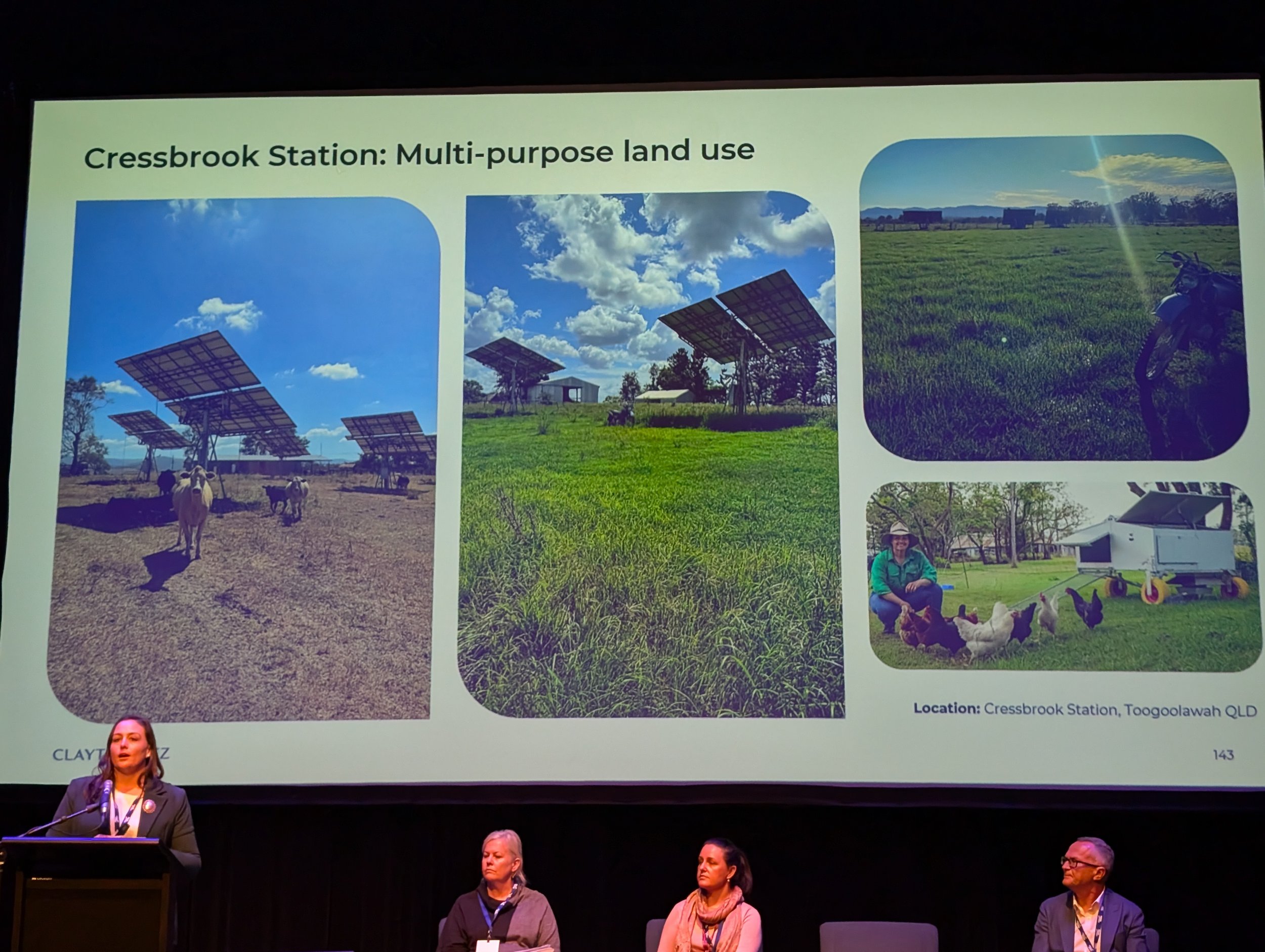Renewables in Agriculture Conference
A shorter version of this article was published in Stanthorpe Today on Thursday 1 August 2024.
On July 4th, a group of twelve regional landholders gathered in Toowoomba for the National Renewables in Agriculture Conference and Expo. The day was a testament to the practical and progressive mindset of farmers. It showcased their commitment to reducing costs, saving energy, and embracing sustainable practices. The conference provided a refreshing counterpoint to the often divisive public discourse on climate change.
Laurie Brosnan, a central Queensland pig farmer, shared his success story of using biogas from piggery effluent to power his farm. This innovative approach has not only eliminated his $55,000 monthly energy costs but also transformed waste into valuable fertiliser.
Jo Sheppard, CEO of Queensland Farmers’ Federation, showcased the Queensland Renewable Energy Landholder Toolkit. The toolkit, which QFF helped design, provides essential information and support for farmers navigating the complex landscape of renewable energy projects. Farmers can contact QFF for more support if they have been approached by an energy company.
Caitlin McConnel, a beef farmer, presented compelling evidence of the benefits of solar farms on agricultural land, with her photos showcasing improved pasture health under solar panels over summer.
Suzanne says: “It was heartening to see the continued push for 'working together'. As a person who is a (small scale) farmer and someone concerned about climate change, I was great to hear the role that renewables can have in enabling Australian farmers to keep on farming. The diversity of ways renewables - of all types - can reduce our carbon footprint and also reduce economic burden was a real highlight. I was most intrigued about peer to peer power trading - where the benefits of one farmer's renewables can be shared with neighbours to reduce power bills.”
Melinda commented: “Farmer Gayle Lee was an informative panellist at The National Renewables in Agriculture Conference. She spoke about the way energy companies have changed the way they work with landowners. In the 1960's power lines were erected without compensation on her family farm. In the 2020's those power lines gave her family an opportunity to negotiate with multiple solar farm operators. The operator they chose leased part of their land to build a solar farm that has been operational since 2021 and sheep continue to graze between the solar panels. A great example of how renewable energy projects and farming can co-exist giving an alternative income stream to farmers as we transition to net zero.”
Tim added: “The National Renewals in Agriculture Conference was a very useful event to attend. In particular we found the Farmer Showcase session very interesting. Mike Casey from New Zealand talked about his electric farm – a cherry orchard. He had looked at many similar things to what we have done on our vineyard. It was good to see that he had solved the electric tractor and electric sprayer questions which we have been investigating as well. His investments were carefully costed and showed the viability of farm electrification. In addition, Cressida Cains talked about peer to peer electricity trading involving her NSW dairy farm which was something we would like to see up here in Queensland at some stage if the regulatory side can be solved. Overall we found that all the speakers had useful information to share and we were encouraged to see that the event was well attended with all 350 tickets sold.”
“I got so much out of the Renewable Energy in Agriculture Conference – from the presentations and networking. It was one of the most inspiring and useful conferences I’ve ever been to. The presenters were diverse and excellent and showcased cost savings and revenue streams for farmers of different types in different circumstances. Additionally there were discussions around better outcomes for communities from major renewable projects.” - Kushla
The Expo demonstrated that renewables can add value to farming operations in a variety of ways in a wide variety of farm contexts. The current divisive debate does necessarily not reflect the reality in rural Australia. The Queensland Farmer’s Federation recognise and have embraced the opportunity that renewables offer primary producers when landholders are organised and proactively involved in renewable projects. Given agriculture will be one of the most impacted sectors by climate change, the Expo shows the path forward for rural Australia.
GBSAN is grateful to have received a grant from ACCIONA Energía to fund this trip.
Caitlin McConnel from Cressbrook Station demonstrating cattle under solar - the grass under the solar panels is 1 foot taller than the surrounding grass.


